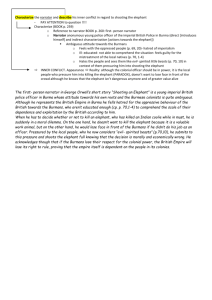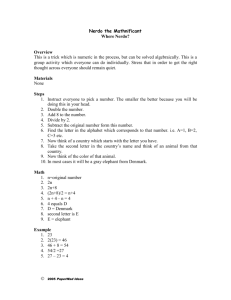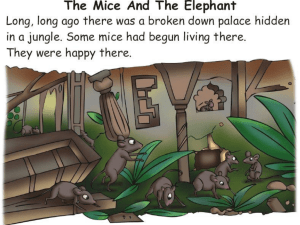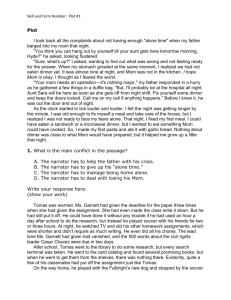Commentary From Shooting An Elephant
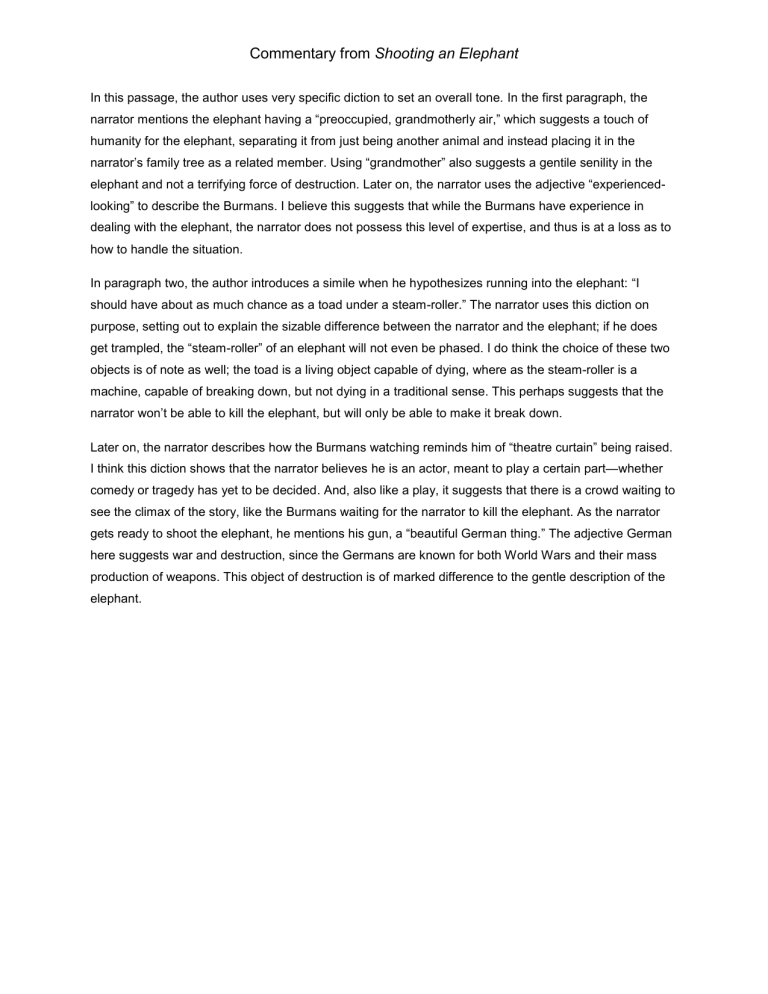
Commentary from Shooting an Elephant
In this passage, the author uses very specific diction to set an overall tone. In the first paragraph, the narrator mentions the elephant having a “preoccupied, grandmotherly air,” which suggests a touch of humanity for the elephant, separating it from just being another animal and instead placing it in the narrator’s family tree as a related member. Using “grandmother” also suggests a gentile senility in the elephant and not a terrifying force of destruction. Later on, the narrator uses the adject ive “experiencedlooking” to describe the Burmans. I believe this suggests that while the Burmans have experience in dealing with the elephant, the narrator does not possess this level of expertise, and thus is at a loss as to how to handle the situation.
In paragraph two, the author introduces a simile when he hypothesizes running into the elephant: “I should have about as much chance as a toad under a steamroller.” The narrator uses this diction on purpose, setting out to explain the sizable difference between the narrator and the elephant; if he does get trampled, the “steam-roller” of an elephant will not even be phased. I do think the choice of these two objects is of note as well; the toad is a living object capable of dying, where as the steam-roller is a machine, capable of breaking down, but not dying in a traditional sense. This perhaps suggests that the narrator won’t be able to kill the elephant, but will only be able to make it break down.
Later on, the narrator describes how the Burmans watchi ng reminds him of “theatre curtain” being raised.
I think this diction shows that the narrator believes he is an actor, meant to play a certain part —whether comedy or tragedy has yet to be decided. And, also like a play, it suggests that there is a crowd waiting to see the climax of the story, like the Burmans waiting for the narrator to kill the elephant. As the narrator gets ready to shoot the elephant, he mentions his gun, a “beautiful German thing.” The adjective German here suggests war and destruction, since the Germans are known for both World Wars and their mass production of weapons. This object of destruction is of marked difference to the gentle description of the elephant.
